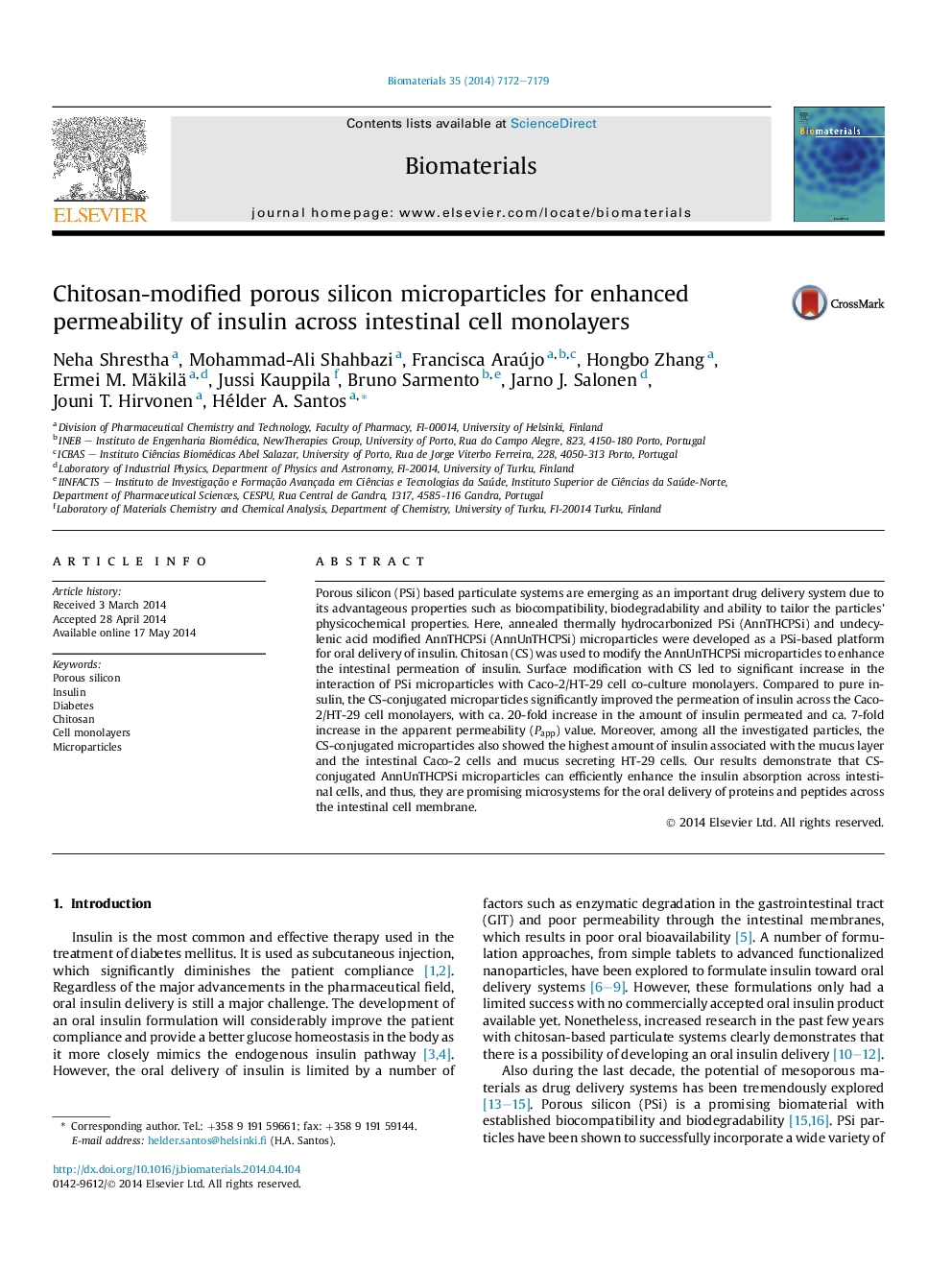| Article ID | Journal | Published Year | Pages | File Type |
|---|---|---|---|---|
| 10227580 | Biomaterials | 2014 | 8 Pages |
Abstract
Porous silicon (PSi) based particulate systems are emerging as an important drug delivery system due to its advantageous properties such as biocompatibility, biodegradability and ability to tailor the particles' physicochemical properties. Here, annealed thermally hydrocarbonized PSi (AnnTHCPSi) and undecylenic acid modified AnnTHCPSi (AnnUnTHCPSi) microparticles were developed as a PSi-based platform for oral delivery of insulin. Chitosan (CS) was used to modify the AnnUnTHCPSi microparticles to enhance the intestinal permeation of insulin. Surface modification with CS led to significant increase in the interaction of PSi microparticles with Caco-2/HT-29 cell co-culture monolayers. Compared to pure insulin, the CS-conjugated microparticles significantly improved the permeation of insulin across the Caco-2/HT-29 cell monolayers, with ca. 20-fold increase in the amount of insulin permeated and ca. 7-fold increase in the apparent permeability (Papp) value. Moreover, among all the investigated particles, the CS-conjugated microparticles also showed the highest amount of insulin associated with the mucus layer and the intestinal Caco-2 cells and mucus secreting HT-29 cells. Our results demonstrate that CS-conjugated AnnUnTHCPSi microparticles can efficiently enhance the insulin absorption across intestinal cells, and thus, they are promising microsystems for the oral delivery of proteins and peptides across the intestinal cell membrane.
Related Topics
Physical Sciences and Engineering
Chemical Engineering
Bioengineering
Authors
Neha Shrestha, Mohammad-Ali Shahbazi, Francisca Araújo, Hongbo Zhang, Ermei M. Mäkilä, Jussi Kauppila, Bruno Sarmento, Jarno J. Salonen, Jouni T. Hirvonen, Hélder A. Santos,
